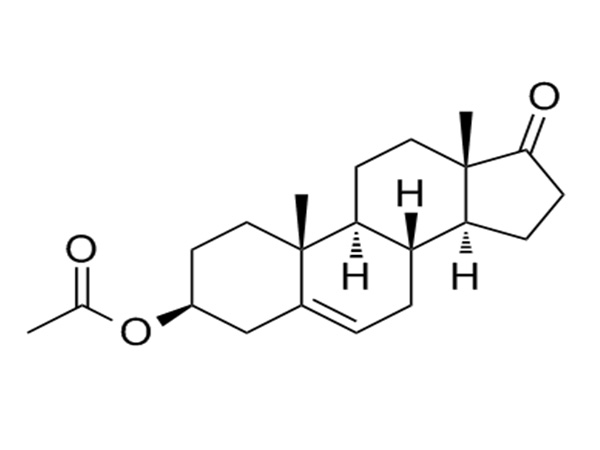Understanding the Mechanism of Action of DHEA Acetate: Unveiling Its Effects in the Body
2024-03-18
Dehydroepiandrosterone (DHEA) Acetate, commonly referred to as DHEA Acetate or Prasterone Acetate, is a synthetic form of the hormone DHEA. While the precise mechanisms underlying its actions are still being elucidated, researchers have made significant strides in understanding how DHEA Acetate exerts its effects in the body. In this blog, we'll explore the intricate mechanisms through which DHEA Acetate influences various physiological processes.
1. Precursor to Sex Hormones
DHEA Acetate serves as a precursor to several important sex hormones, including testosterone and estrogen. Once absorbed into the body, DHEA Acetate undergoes metabolic conversion in peripheral tissues, ultimately giving rise to active androgens and estrogens. By providing a reservoir of precursor molecules, DHEA Acetate helps maintain optimal levels of sex hormones, which play key roles in regulating reproductive function, libido, and overall vitality.
2. Modulation of Neurotransmitter Activity
Emerging evidence suggests that DHEA Acetate may exert neuromodulatory effects by influencing neurotransmitter activity in the brain. DHEA and its metabolites interact with various neurotransmitter systems, including serotonin, dopamine, and gamma-aminobutyric acid (GABA). These interactions may contribute to the mood-enhancing and cognitive-boosting properties attributed to DHEA Acetate, making it a potential candidate for the management of mood disorders and cognitive decline.
3. Regulation of Immune Function
DHEA Acetate has been implicated in the regulation of immune function, although the precise mechanisms involved are still being elucidated. Studies suggest that DHEA and its metabolites may modulate the activity of immune cells, including T cells, B cells, and natural killer (NK) cells. Additionally, DHEA Acetate may influence the production of cytokines and other immune signaling molecules, thereby exerting immunomodulatory effects. These immunomodulatory properties could have implications for the management of autoimmune disorders, infectious diseases, and age-related immune dysfunction.
4. Anti-inflammatory Effects
Inflammation is a hallmark of many chronic diseases, ranging from cardiovascular disease to neurodegenerative disorders. DHEA Acetate has been shown to possess anti-inflammatory properties, which may help mitigate inflammation-associated tissue damage and disease progression. By inhibiting the production of pro-inflammatory cytokines and modulating inflammatory signaling pathways, DHEA Acetate exhibits potential therapeutic utility in the management of inflammatory conditions.
Conclusion
The mechanisms by which DHEA Acetate exerts its effects in the body are multifaceted and complex, encompassing its role as a precursor to sex hormones, modulation of neurotransmitter activity, regulation of immune function, and anti-inflammatory effects. While our understanding of these mechanisms continues to evolve, the therapeutic potential of DHEA Acetate across a diverse range of health conditions underscores its significance in clinical practice. As research in this field progresses, further insights into the mechanisms of action of DHEA Acetate may pave the way for novel therapeutic interventions and improved patient outcomes.



